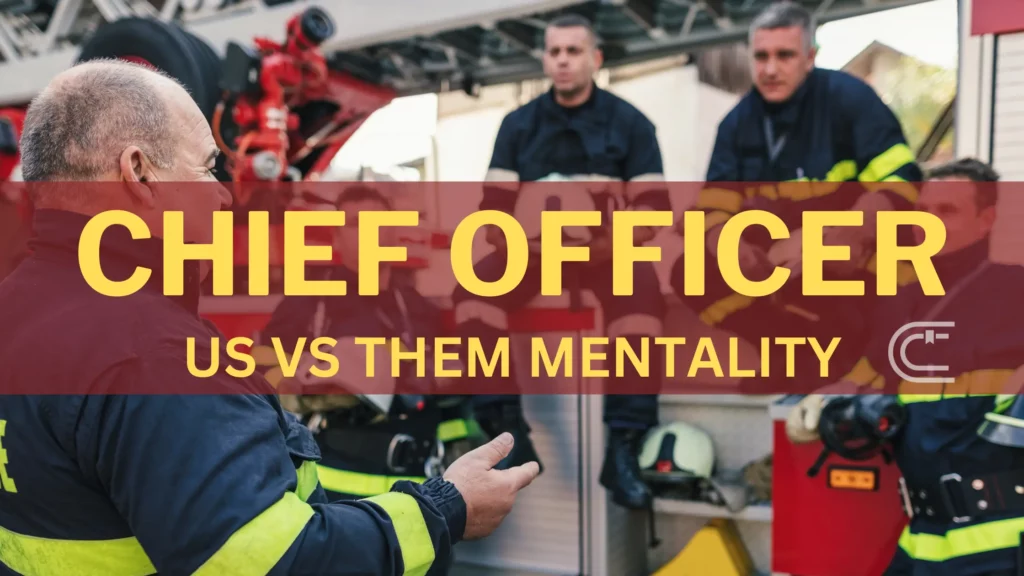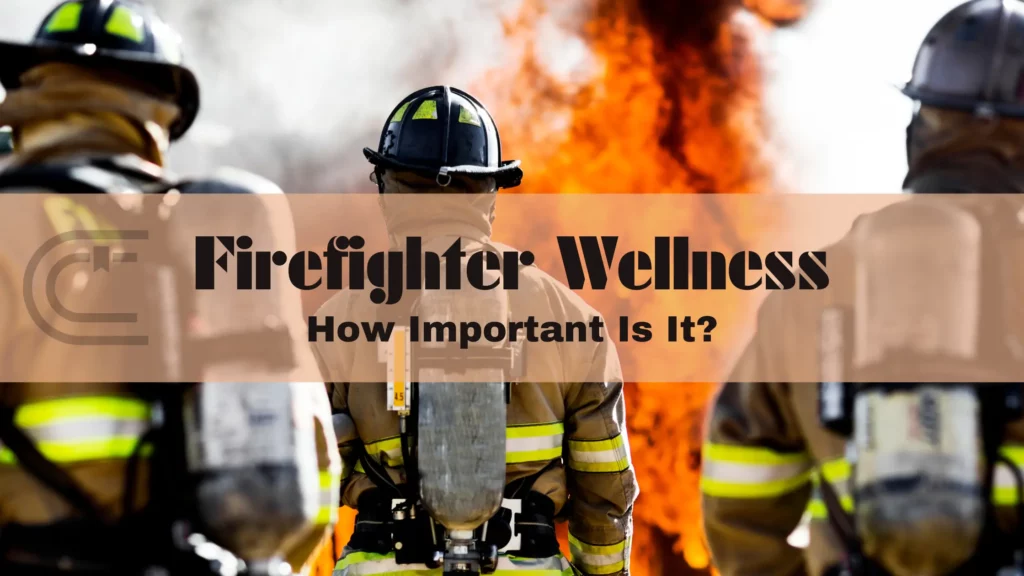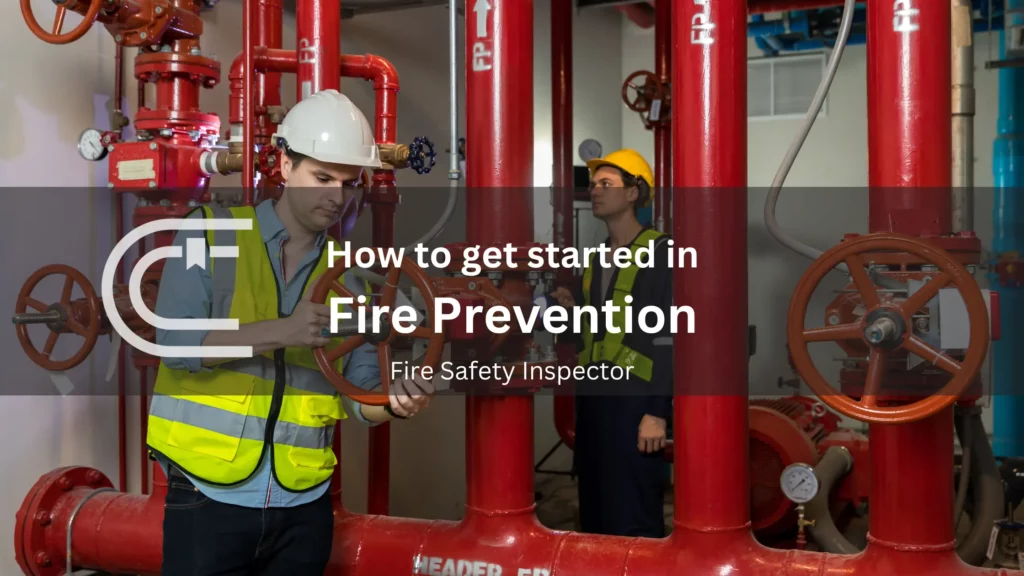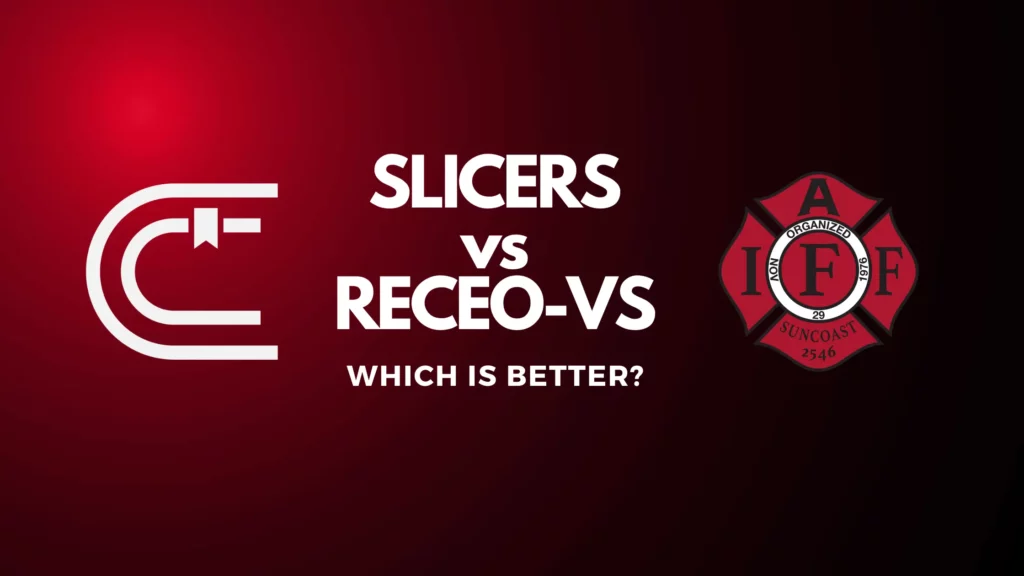The Role of the Fire Officer in 2023
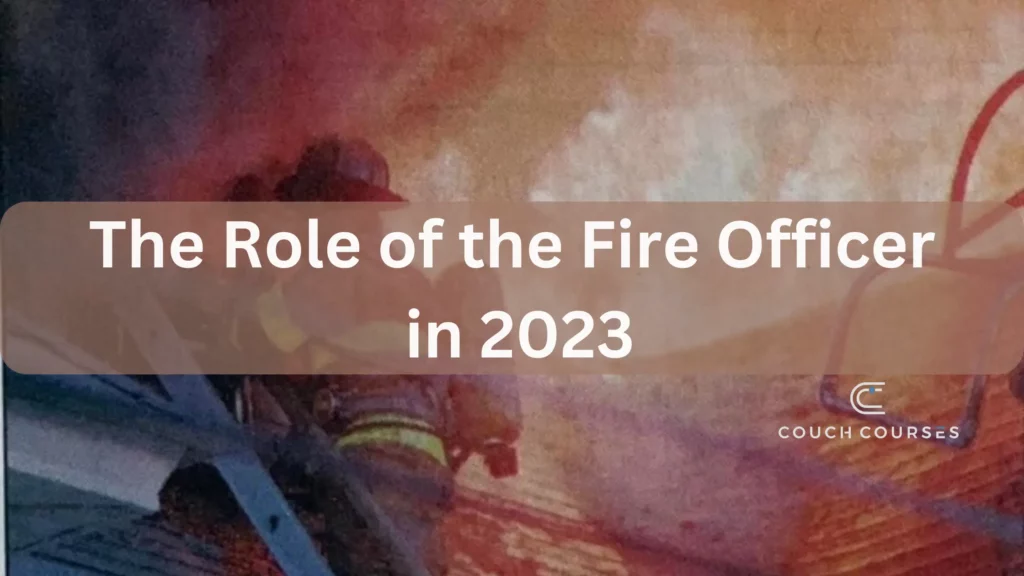
What is the role of today’s fire officer?
While the overall mission of today’s fire service hasn’t changed much over the years, the tasks that we need to accomplish to carry out that mission have. Today’s fire service needs to respond to all types of emergency, or non-emergency requests from citizens. Today’s fire service officers need to be able to lead their crews, not just give orders. Let’s look at the role of today’s fire officer.
Top Priority - Safety
The top priority of any fire officer, at any level from the fire chief on down, is to keep the people in their charge safe, and that starts with good communication skills. Fire officers in any organization are part of the management team. As such, they need to be able to communicate up and down the chain of command.
This requires fire officers to take a larger organizational view than they may have as a fire firefighter. Heifetz and Linsky (2017), describe this practice as getting on the balcony. The higher the balcony, the wider your perspective.
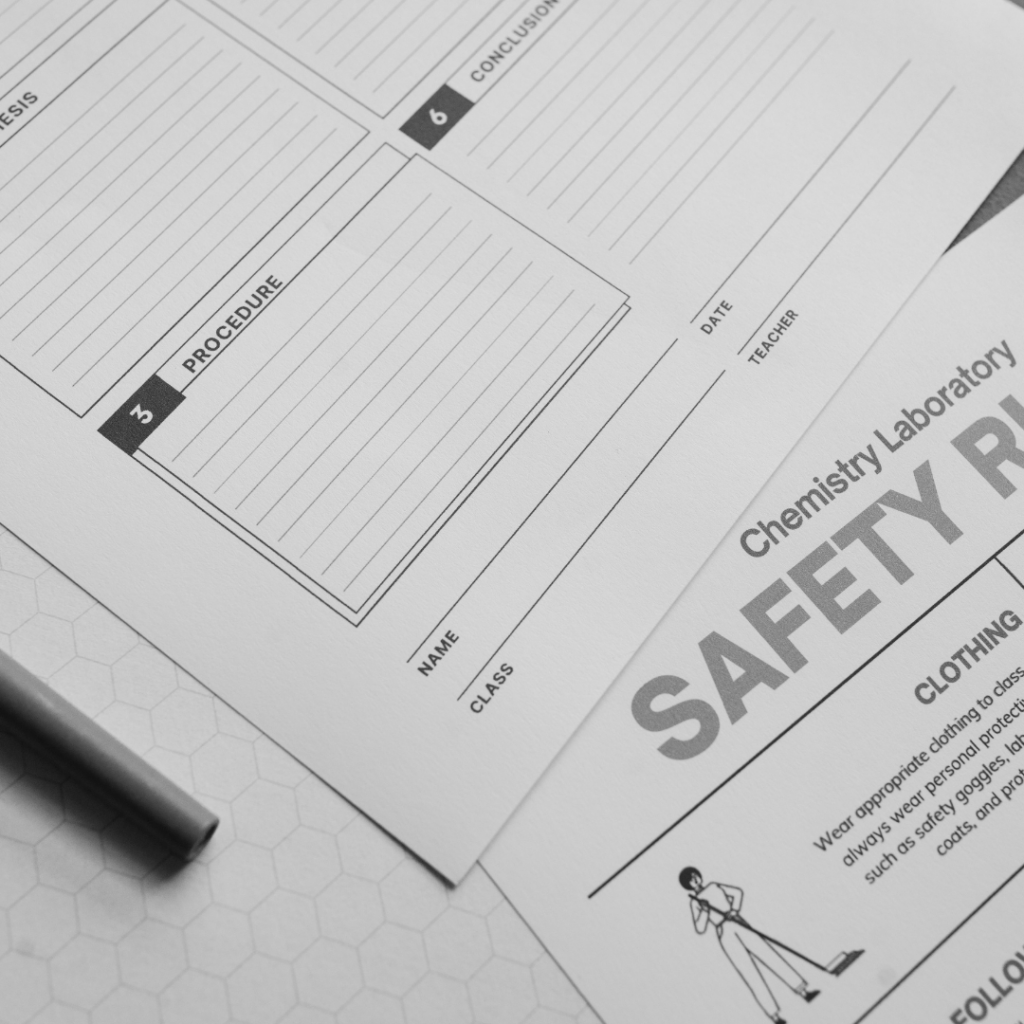
Communication
Communication can be difficult, but it is a necessary leadership skill. Communication is an important responsibility for today’s fire officer.
Everyone receives and processes information differently. As a fire chief there were many times I thought I had communicated what I wanted clearly, only to find out later that I hadn’t.
The fire officer needs to find out what communication technique works best for their crew and individual members, as well as those above them in the chain of command. As the conduit for communication both up and down the chain of command, the fire officer needs to be adept at learning how best to get the message delivered in a format that is respectful, mindful, and easy to understand.
There may be times when the fire officer needs to find out the reason for a policy change from the fire chief or relay feedback from the crew to the fire chief. Each of these scenarios may require a different approach.
Mentor/Coach
Fire officers are also mentors and coaches. Today’s fire service has multiple generations represented that pose challenges to the fire officer and the organization. It may not be uncommon for a fire officer to have four different generations on their respective crews, particularly in a volunteer setting.
The fire officer needs to approach their role as a patient mentor and/or coach who can bridge the differences between the generations. Generations are different, not better, or worse, different. Understanding how each person of their respective crew thinks and learns is a key to good communication, as is understanding each crew member’s values.
As a fire officer, you not only want but need your crew members to succeed. Individual success leads to crew success, which leads to organization success which leads to mission accomplishment. Your goal as a fire officer is to help your crew members evaluate themselves to see where they need to improve and work with them to remove any barriers they may face in the process. Acting as a mentor and/or coach can help you help your crew members.

Providing protection
Part of acting as a mentor involves the fire officer acting as a protector. Simply put, one of your many roles is protecting your crew, sometimes from themselves.
Shielding your crew involves the obvious such as ensuring they follow the safety policies of the department, wear their seatbelts, wear their personal protective equipment, and maintain crew integrity among other things.
Protecting your crew also means teaching them to be thoughtful before speaking, to be respectful of themselves and others, embrace the concepts of safety, training, physical fitness, fire prevention, and whatever else may be needed.
Corrective discipline
Mentoring and coaching may also mean imposing discipline. If we understand that discipline is a tool to correct behavior and not a tool to punish or harm, we can strengthen our crew members. Being an officer is not intended to be a power trip, it is meant to apply leadership skills where and when needed.
A good leader will use the discipline process to correct behavior before it becomes a pattern. There is a phenomenon called the normalization of deviant behavior. For our purposes, this occurs when deviation from the proper or safe way to perform a task becomes normalized. This typically is the result of a pattern developing because no negative consequence occurred.
Let’s use personal protective equipment as an example.
A firefighter is asked to perform a task requiring the use of gloves, but, as we all know, the gloves are cumbersome and dexterity is difficult, so the firefighter removes the gloves. If the firefighter accomplishes the task without getting hurt, they are more apt to do this again the next time that situation occurs, and so on and so on and so on and so on then it becomes normal.
In this scenario, the firefighter’s action was caused by goal fixation. That is, they were so focused on accomplishing the goal that safety became secondary. When there were no immediate consequences, it became routine.
You can apply non-emergency scenarios to the normalization of deviant behavior as well. Scenarios such as house chores, vehicle, and equipment check, uniforms, etc. The fire officer is the corrective action for the normalization of deviant behavior by imposing discipline when the deviation is first discovered. In other words, nipping it in the bud!
Setting expectations
Now more than ever it is critical for the fire officer to set expectations for their crews. With multiple generations represented in the fire department today, assuming everyone knows what you want as a leader, and what needs to be done can be a recipe for disaster. The fire officer needs to set realistic expectations for their crews on everything ranging from house chores and truck checks to wearing personal protective equipment and fire ground operations.
Expectations also include boundaries of behavior. Crew members need to be respectful of themselves, other crew members, other crews, other department members, and the public. Like the normalization of deviant behavior, unchecked words or actions in the firehouse can lead to organizational issues. These expectations need to be clearly articulated so that everyone is clear on what their role is, including the fire officer.

Continual Evaluation
Being an officer means being a leader, and leadership can be difficult. The fire officer needs to understand their people to be sure, but even more importantly, they need to understand themselves.
All of us have weaknesses, faults, and biases. If we recognize this, we can work to overcome the challenges presented by those flaws we all have. In their book “Leadership and Self-deception, getting out of the Box”, the Arbinger Group (2000) describes a process they call getting out of the box. Getting out of the box is used as a metaphor for changing our way of thinking to account for our flaws, biases, experiences, and previous judgments we have made about a person or situation.
As a leader self-evaluation and self-improvement should always be applied just as you expect your crew members to self-evaluate and improve. Putting all of these skills together can lead to a saver and more efficient team.
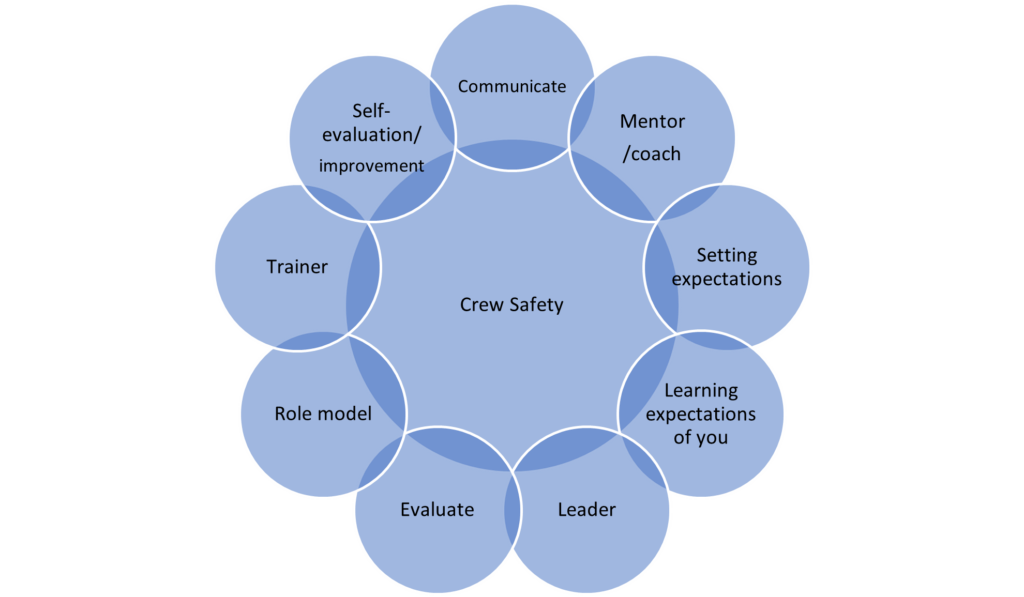
Conclusion
How does the fire officer put all this together to fulfill their role and keep people safe?
- Lead by example. The fire officer needs to “walk the walk” and be the person they expect their crew members to be. That means following the policies of the department, being in the proper uniform, being on time, and being respectful of those around them.
- Be a good communicator. Communicate with people on a level that they can understand and benefit from up and down the chain of command. Work at finding out the best way to communicate with individuals.
- Be consistent. Although each crew member and each situation may be different, the fire officer needs to approach things in a consistent manner to demonstrate equity to everyone.
- Set expectations clearly. Be clear about what you expect from your crew members and use the disciplinary process when they deviate from your expectations. Remember, this is where your role as a mentor or coach comes in. Discipline doesn’t always involve writing people up, or warnings. Sometimes discipline is a counseling or coaching session designed to be corrective in nature.
- Find out what your crew expectations are of you. Just as you have an expectation of your crew, they have one of you. Work to find out what they expect of you so that you can work to meet those expectations, further building trust and commitment.
A fire officer should look at their ever-evolving job and the roles they play as a process designed to keep their crews safe and successfully complete the mission.
References
Heifetz, R.A., & Linsky, M (2017). Leadership on the line: Staying alive through the dangers of change. Harvard Business Review Press, Boston, MA
The Arbinger Institute (2000). Leadership and self-deception: Getting out of the Box. Berrett-Koehler, Publishers, Inc. San Francisco, CA.
Resources
- Company Officer, Course
- Mentoring Through Caring, Article
- Mentoring With Humility, Article
- The Cost of Mentoring, Article
- 12 Tips to building trust as a new fire officer, Article
- Human Resources for the Company Officer, Article


